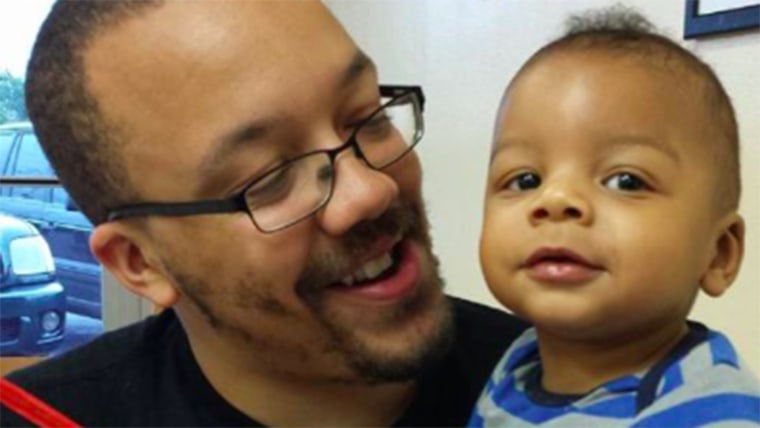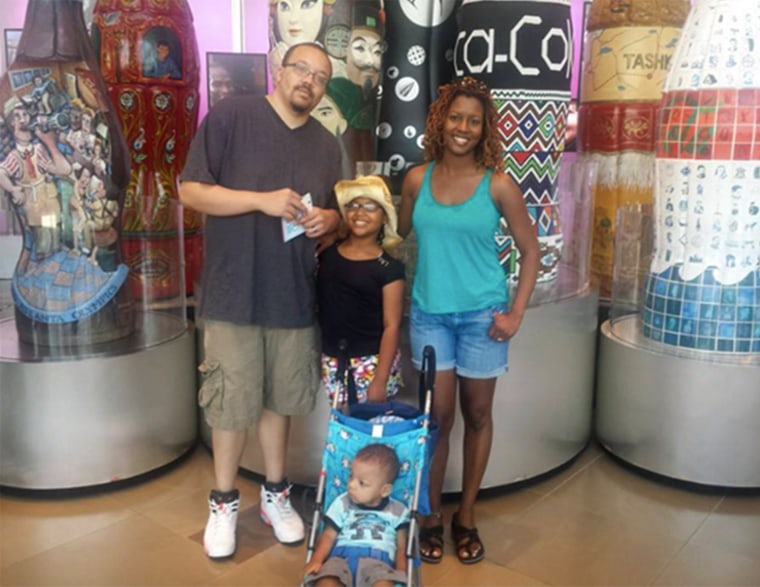While it’s been hard to watch all of the incidents with police officers and people of color in America, the Eric Garner incident really struck a nerve for my family. Two months ago, my son was diagnosed with Autism Spectrum Disorder, and with that diagnosis comes concern that he’ll have communication issues as he gets older. As an African-American, difficulties communicating with police could be a life or death complication.
I’m quickly learning what every parent of an autistic child knows: fear is part of this package and presents itself in different ways for different people.
When Garner died, I sent two of my friends an email with the subject line: “this is why it messes me up.” I told them about my son’s autism and explained how Garner’s death made me scared for my son. I am afraid that any communication issues my son will have as he gets older will make him a target for police brutality. That if he doesn’t understand and follow police instructions, a cop could shoot him.

I’ve had police pull me over and yell at me, causing me to call upon all the discipline I could muster to not let the situation escalate. I’m not sure, though, how my son may react to getting screamed at by a stranger. I don’t know if certain textures will bother my son or if being touched will instinctively make him jerk back and resist getting grabbed. All of these reactions could be life-threatening.
I’m afraid that any reaction that doesn’t adhere to societal norms of typically developed children or young adults may put my son in the cross-hairs of an eager or misunderstanding officer. Every time I see the videos of unarmed people killed by police, I think about my son and how we can explain interacting with the police to him. Seeing these videos has actually made us even more proactive in facing my son’s diagnosis and what it means long-term.
It has been just two months since the diagnosis, so I am still processing what it means. Because my son is pretty high-functioning so far—talking, interacting with people in the room, making great eye contact and being extremely playful—it’s easy to pretend he doesn’t have autism. But seeing what the police did to Garner has forced me to consider what difficulties his future may hold and how to maximize his life’s benefits.
Initially, I thought it was my fault that he has autism, and sometimes, in my darkest moments, I allow the guilt to creep in. My son spent his first nine months at home with me while I worked as a writer. Even though the first thing the counselors told us was “autism doesn’t come from bad parenting,” while explaining the possible causes unrelated to parenting, I couldn’t help but think I did something wrong. That I didn’t stimulate him enough and I was too focused on my work to give him the attention he needed. I know that’s not rational, and that guilt never made anyone a better parent.
So I choose to instead be inspired and reassured by how well my son is doing. He’s started therapy—(even though Georgia is one of the 13 states that doesn’t provide mandatory Applied Behavioral Analysis therapy, another monster itself)—and has responded well. He’s using more words and taking more social cues. Even before he started therapy, doctors and therapists would respond with shock that he was diagnosed in the first place because of his social skills. However, I know that’s a double-edged sword because friends and family can use their amateur medical backgrounds to declare that the doctors are wrong and my son is “normal.”

We have to walk a fine line between letting people know that my son has autism and not having people define him by his diagnosis. Sometimes he stems—he likes to spin on the ground and focuses on the wheel of a toy car instead of the whole thing—and people need to know that’s a symptom of his autism. However, they also need to see that he still loves dancing, and doing back-flips off of giant exercise balls. He will sing the hell out of a song about three little kittens who lost their mittens. He’s not a disabled child or a child that shouldn’t be loved and enjoyed, but he also has a diagnosis that is important to address.
Since my son is just two, it’s unclear where he’ll fall on the spectrum when he’s older and his brain is fully developed. So we’re still not entirely sure what we’re dealing with for the long-term.
Which means there are plenty of variables we can’t control—including my initial fear of him dealing with law enforcement and figuring out how to avoid anything resembling what happened to Eric Garner. But I do know that no matter what, we’ll continue to give him all the love we have. And in the end, that’s the most important thing he needs.